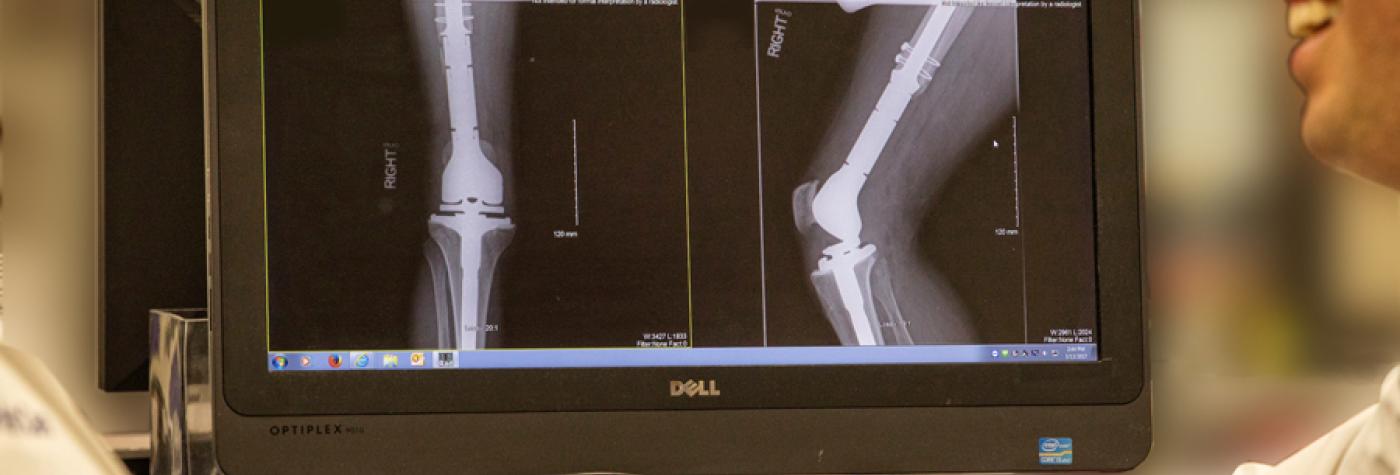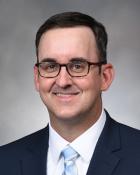Bone cancer develops when the cells in one of your bones start to grow out of control. If the cancer starts in your bones, it’s called a primary bone cancer or a bone sarcoma. If it starts in your blood, bone marrow or elsewhere in your body, it’s called a secondary bone cancer.
 Bone Cancer at UK Markey Cancer Center
Bone Cancer at UK Markey Cancer Center
The UK Markey Cancer Center is proud to be one of only two programs treating bone cancer in Kentucky. The Bone Oncology team treats both pediatric and adult patients with bone and soft tissue tumors along with tumor-like conditions affecting the bone system.
In addition to clinical care, this unique team of physicians and researchers is pursuing research in cancer immunotherapy, advanced tumor imaging, biomedical engineering of sarcoma-like substances and clinical trials — all dedicated toward improved patient-centered care.
Each patient is cared for by specialists who meet regularly to discuss individual patient cases and treatment plans. This multidisciplinary team will work with you and your doctor to coordinate a care plan designed to offer the best outcomes.
Markey is proud to be the only cancer center in Kentucky designated by the National Cancer Institute. Since 2017, Markey Cancer Center has been nationally recognized as a top 50 cancer center by U.S. News & World Report.
Bone cancer can cause a variety of symptoms, including:
- Bone fractures
- A lump or swelling
- Numbness or tingling
- Pain in the area of the tumor
For all cases among adults and children, the five-year survival rate for bone cancer patients is about 70 percent, according to the American Cancer Society.
You can lower your risk of cancer by taking steps to build a healthy lifestyle. Here are some ways you can lower your risk for this disease, as well as improve your overall basic health:
- Avoid using tobacco products. Tobacco has been tied to multiple cancers, and it is responsible for 90 percent of lung cancer deaths.
- Stay physically active. Your physical activity is related to risk for colon and breast cancer. Excess weight gained from inactivity increases the risk of multiple cancers.
- Limit alcohol consumption. It is important to be mindful of how much alcohol you drink. Alcohol intake, even in moderate amounts, can increase the risk for colon, breast, esophageal and oropharyngeal cancer.
- Learn about screenings. Your primary care doctor can recommend appropriate cancer screenings based on your age, personal risk and family history.
- Age. Some types of bone cancers are more common in young people, while others tend to develop as we get older.
- Benign tumors. The presence of non-cancerous tumors can raise the risk of chondrosarcoma, a rare type of bone cancer.
- Paget disease. This benign condition, most common in the elderly, poses a slight risk of developing tumors in the area of a fractured bone.
- Radiation therapy. People who have gotten radiation therapy, usually for another kind of cancer, have a slight risk of developing bone cancer in the treatment area. The risk is higher in people treated as children and those treated with higher radiation doses.
- For your first visit, you will be directed to the multidisciplinary clinic in the Whitney-Hendrickson Building.
- You can register at the front desk or registration area, where a Markey team member will help guide you through your appointment.
- Several parking options are available to patients of Markey Cancer Center.
- Please remember to bring your patient packet with the completed forms. These items will help your doctor learn more about your case and determine the best plan for your care.
- To meet our patient needs, UK HealthCare accepts many forms of insurance.
Clinical trials are research studies aimed at evaluating medical, surgical or behavioral interventions to determine if a new treatment is safe and effective.
At the UK Markey Cancer Center, we are advancing care and research to prevent, detect and treat cancer – one patient at a time. As a patient at Markey, you have a team of people looking at your individual case, applying the most recent cancer knowledge to give you the best chance of survival.
Markey has more open clinical trials than any other cancer center in the region, giving you access to some of the most advanced options available. Learn more about ongoing clinical trials for treating bone cancer.


















